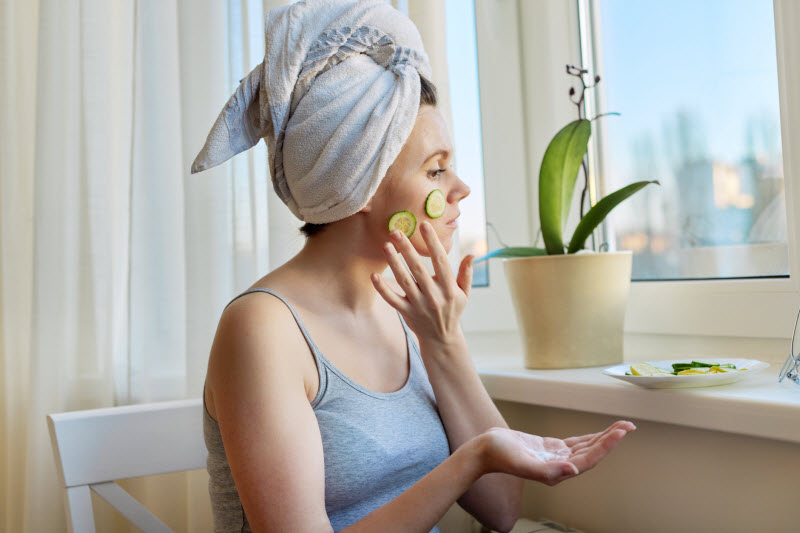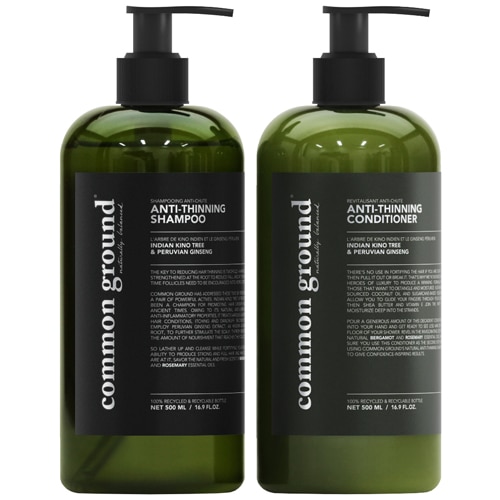As we move into the new year, many people may be rethinking their overall buying habits, especially if funds are running tight. And yet, it seems that skin health essentials are a top American priority. In fact, the skincare industry is one of the fastest-growing beauty markets in the United States.

According to a study by
Advanced Dermatology, despite shelling out nearly $1,000 per year on personal care, 60 percent of Americans wish they had
more money to spend on their appearance. Additionally, researchers discovered that:
- On average, women spend more ($877) than men do ($592) on their looks.
- Nearly 1 in 6 Americans spend more on healthy beauty than they can afford.
- The average American has laid out $630 for cosmetic procedures.
- 34 percent of Americans want to receive beauty/wellness products as gifts.
- 3 in 5 Americans say inflation impacts their decision whether to spend money on their appearance.
- 1 in 10 Americans have tried to look like a celebrity.
The survey also found that interest in
personal care for men has increased by an astonishing
400 percent in recent years, with skincare brands recording profits in the billions, and growing annually by 16 percent. While men have traditionally focused less on specific ingredients, that too is shifting with a greater acceptance of gender neutrality/fluidity. Happily, people are celebrating the ability to express both our feminine
and masculine sides, thus redefining the ‘modern man.’
On the heels of this paradigm shift, the male grooming industry is rapidly adding new product categories, with
facial cleansers currently ranking among the most popular items for men. Male interest in natural
shaving crème, soothing
aftershave treatments, facial
moisturizers, and
exfoliating scrubs is also growing exponentially.
America’s obsession with glowing beauty, and the yearning to actualize it at any cost, is clearly on the rise. So how can you create a healthy, effective regimen
without breaking the bank? Happily, there are many approaches to smart personal care that cost little and deliver big benefits. Some are even free, such as sound sleep, avoiding the sun, and proper hydration. Consider these ideas as well.
Best Beauty on a Budget Tips
Review your regimen
If you have not taken stock of your personal care regimen lately, it may be time for some paring down. It’s easy to accumulate an excess of products over time, yet less is often more, especially when you take advantage of multi-use products, like a
tinted moisturizer with sunscreen, for example. To maximize results and minimize potential irritations, choose products that will work best for your skin type. Adopting a simple, three-step approach that includes cleansing, moisturizing and protecting your skin can help reduce skin care costs while you cultivate healthy radiance naturally.
Eat to glow
Your menu plays a role in all biological processes associated with your skin, and no beauty product can compensate for a diet high in sugar, dairy, and fried items, which promote oxidative stress and inflammation. Instead, nourish your largest organ with nutrient-rich beauty foods and beverages such as:
- Tomatoes, which are rich in lycopene, a powerful skin-protective carotenoid.
- Green tea, for a hearty infusion of nourishing flavanols like EGCG, to support healthy skin hydration, elasticity and density.
- Avocados, as they contain compounds to help ward off sun-related premature aging, vitamin E to protect against oxidative damage, beta carotene, protein, lecithin, fatty acids and more.
- Cacao, an antioxidant powerhouse, was found in one study to support firmer skin, reduce sensitivity to sun damage, and enhance blood flow for a greater infusion of nutrients to the dermal layers.
- Walnuts offer more inflammation-fighting omega-3 fatty acids than most other nuts, along with complexion-friendly nutrients like vitamin E, selenium, and zinc, which combats bacteria and supports wound healing.
- Broccoli, which is brimming with skin-rejuvenating zinc, vitamins A and C, and antioxidants like lutein and sulforaphane, appears to help neutralize harmful free radicals and protect your skin from oxidative damage. Evidence suggests sulforaphane may also support healthy collagen levels in your skin.
“Zen” your routine
While the word
Zen officially refers to a Japanese school of Mahayana Buddhism emphasizing the value of meditation and intuition, it has also become a descriptive term in our popular culture to indicate a peaceful, calm, intuitive and streamlined way of living generally. Applying this concept to personal care suggests a relatively uncomplicated, natural approach to beauty. Such a simplified, “Zen” regimen may mean fewer items, high in quality, neatly and attractively organized.
To move in this direction, start weeding out anything that either doesn’t work well, is poor in quality, no longer suits you, or is past its prime. Along with minimizing superfluous clutter for a more serene space, a “Zen” approach can also save you money with an emphasis on effective, long-lasting basics.
Love DIY
Have you ever made your own beauty products? Doing so has become increasingly popular with numerous books, blogs and videos offering ideas and guidance. DIY is fun, creative, relatively easy and immensely satisfying, especially when your wholesome creations end up working even better than costly retail items. Using clean raw materials also allows you to avoid the plethora of chemicals found in most commercial beauty products. Here are some fun DIY ideas to get you started:
4 Fresh DIY Recipes for Your Natural Beauty Routine
5 Ways to Make Your Own Natural Face Wash
DIY Essential Oil Lotion: Frankincense, Lavender & Peppermint
DIY Rosehip Oil Serum for Puffy Eyes & Dark Circles
DIY Beach Waves Spritz
Nix the sugar
Would you believe that between 2021 and 2022, Americans consumed about 11 million
tons of
sugar? Unfortunately, too much of this refined sweetener is detrimental to a healthy complexion. One
study, entitled
An Anti-Wrinkle Diet: Nutritional Strategies to Combat Oxidation, Inflammation and Glycation explored how sugar accelerates skin aging through oxidation, inflammation and glycation.
Glycation occurs when sugar attaches to either protein or fat in the bloodstream. This leads to sugar cross-linking with amino acids in the collagen and elastin that support the dermis layer of your skin, producing harmful compounds called advanced glycation end products (AGEs). Not only are AGEs linked to premature skin aging, but they also increase your risk of Alzheimer’s disease, diabetes, cardiovascular disease, cataracts and chronic metabolic disorders.
As it happens, our best protection against AGEs is not only scaling back on sugar, but excess calories overall. That’s because
caloric restriction, shown to extend life span in various primates, may also slow down the glycation of proteins in the body by lowering blood sugar levels and improving glucose tolerance.
It’s easier to avoid added sugar when you stick to a fresh, whole food, plant-based menu and avoid packaged, processed items. For a calorie-free sweet note, try
liquid or
powdered stevia, one of nature’s great gifts to wellness conscious people.
As you can see, there are many ways to pamper your skin and protect it over time, even on a tight budget. So, let’s get your glow on in 2023!
 According to a study by Advanced Dermatology, despite shelling out nearly $1,000 per year on personal care, 60 percent of Americans wish they had more money to spend on their appearance. Additionally, researchers discovered that:
According to a study by Advanced Dermatology, despite shelling out nearly $1,000 per year on personal care, 60 percent of Americans wish they had more money to spend on their appearance. Additionally, researchers discovered that:























